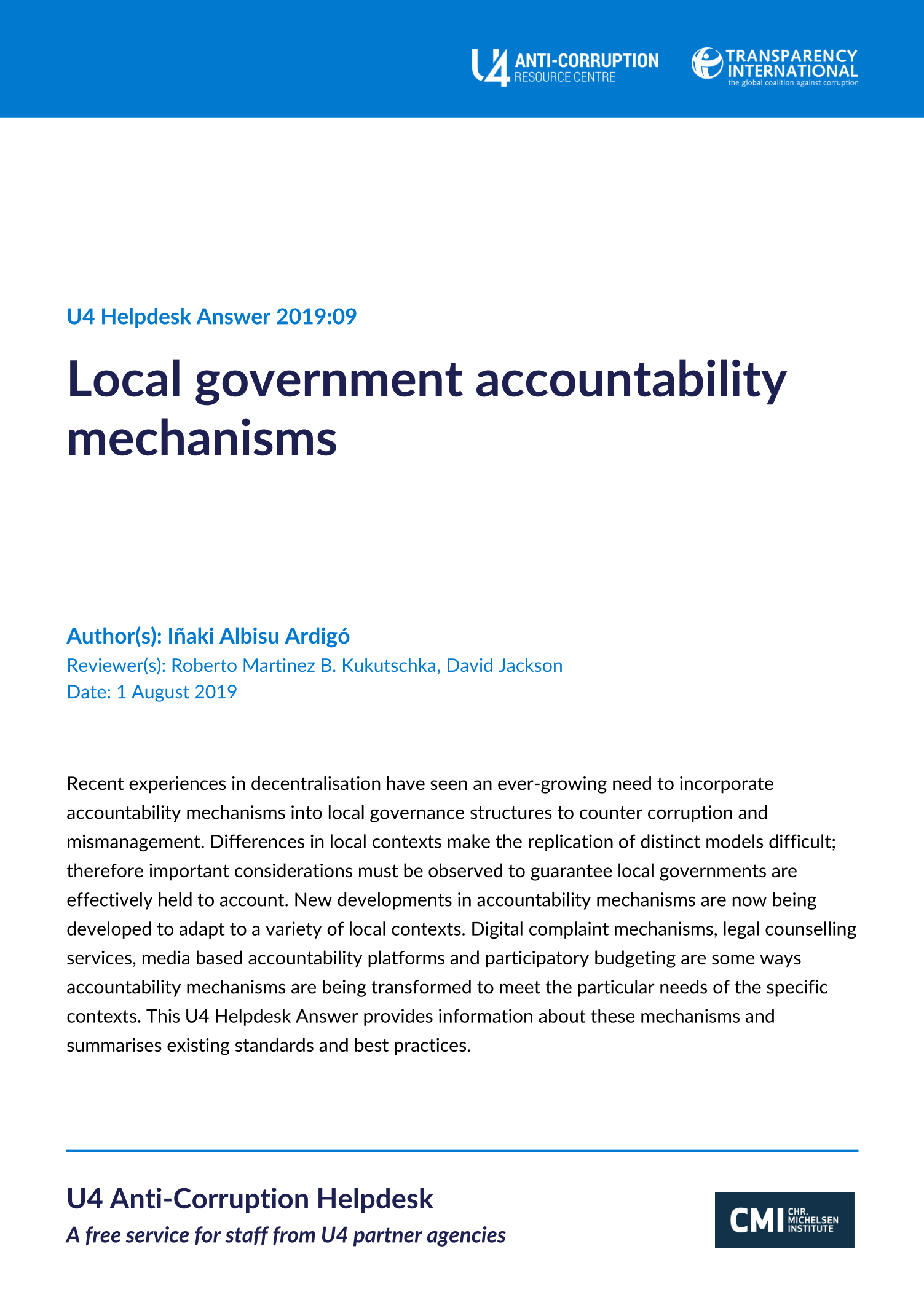Main points
- In response to the failure of decentralisation in many countries, civil society organisations, governments and international development organisations promoted accountability mechanisms to allow citizens to hold local governments responsible for their actions.
- The academic literature has produced some evidence that local accountability mechanisms have a positive impact on governance

